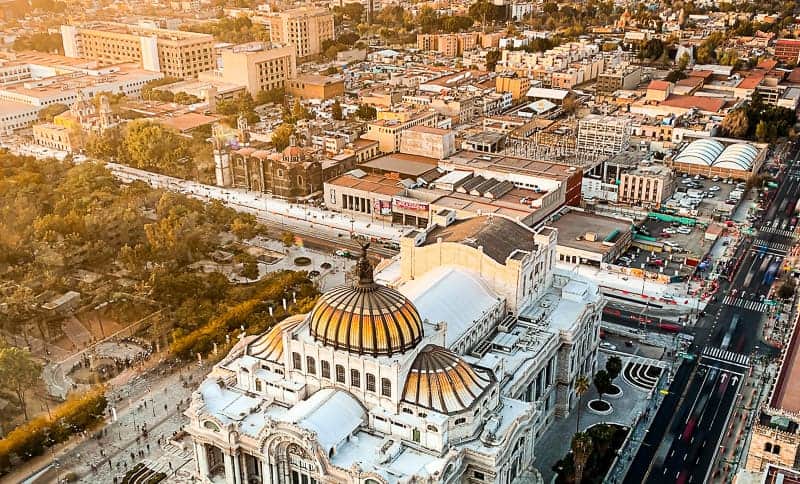
Looking for a New Start Abroad?
Join thousands of Expats who have used our resources to find their ideal home overseas. We provide expert guidance on country selection, immigration, finances, and more.
Start with our FREE Email Series, to help you choose a country and plan for the relocation.
Are you exploring a move abroad but unsure of where to start?
We are here to guide you.
Which country’s lifestyle best suits you and your family?
Can you get a Visa and how hard is it?
Are there opportunities to get citizenship?
What work opportunities are there?
What are the Tax laws and how do they impact you?
What is the cost of living?

“A great place to start your journey”
“We first used Where Can I Live to find the right help for my daughter, who needed an internship visa for Spain. They put us onto their Spanish immigration partner, who has been great despite the Spanish system being so slow!
I’ve also subsequently had the benefit of Alastair’s wide experience when it comes to the options for UK passport holders and Golden Visas, which was incredibly useful.
Trevor (UK)
Start here: Safety, Cost & Citizenship Insights
Discover Your Perfect Destination
We’ve conducted extensive research on subjects that matter to individuals when selecting a new country to make their home. Our research has been featured in media outlets around the world. We hope that you find these studies enlightening and beneficial in your decision-making journey.

Best Cities to Study in Europe
Browse our Free Detailed Country Guides
Written by Expats and Reviewed by Experts
We cover Visas, Citizenship, Lifestyle, Tax, Finance, working, studying, retirement, and more in each country.
We currently cover 23 countries, selected based on the highest demand.

“Kind & careful folks”
Every inquiry I’ve had has been dealt with immediately; the companies & institutions recommended by A&A have been thoroughly researched so one can proceed with confidence. It’s so scary to do online business for those of us who are suspicious, so thank goodness for kind & careful folks!
Sarah Cole
Do you know what your visa options are?
Our network of immigration professionals provide consultations to clarify the following:
Which visas or residency permits are you eligible for?
What is the easiest residency path?
Are you eligible for citizenship in any country?
What are the financial requirements for the visa?
What steps are involved in getting the visa or citizenship?
What is the cost of assistance for the whole process?
Meet Our Team of Experts
ALL OUR PARTNERS
are chosen using our meticulous assessment process.
We ensure that they are continuously providing excellent service by asking every single client for feedback.
And partners who get bad feedback go onto our red list!

We are the place to go for immigration lawyers that you can rely on for service and fair pricing.

“The best resource we found for relocation advice”
The resources from wherecani.live were fantastic. We received scheduled meetings and got answers to our questions. Follow-up with tax professionals was easy. Health care quotes were not only fast but MUCH cheaper than the US/UK “global” companies we received quotes from.
We went through multiple channels to get help before we found their site – several rental and real estate agents, searching on our own, and going through other relocation services. All of them were a letdown. Most of the time, we simply didn’t receive a response. So glad we found such a good resource, it was a massive stress relief.
Alex Wiley (USA)
Tools and Resources
We make researching and planning international relocations as easy as possible. Using our tools, you can get quotes from moving companies to Healthcare and learn how to save on money transfers.



Hi, we are Alastair & Alison.
We are serial Expats and have lived in six countries on four continents. We moved from South Africa to London in our 20s, to Sydney by the time we were 30, and to Spain with a young child in our 40s. Alison has also lived in Zimbabwe and Hong Kong.



Where Can I Live was born from our passion for experiencing different cultures worldwide. We wanted to help people to experience the richness of life abroad that we have been so fortunate to experience ourselves.
We got the idea for Where Can I Live while living in Spain as Brexit happened. Alison, a UK passport holder, realized she could get an Irish passport and stay an EU citizen. It was a big relief as a pathway to continue our European adventure.
We wondered how many others did not realize they could get citizenship of a country. We also learned that many didn´t know which visas they could get around the world. Helping people discover these fantastic opportunities has been an absolute pleasure.
Today, you will find even more information, services, and unique tools that help you to identify Where You Can Live.



















